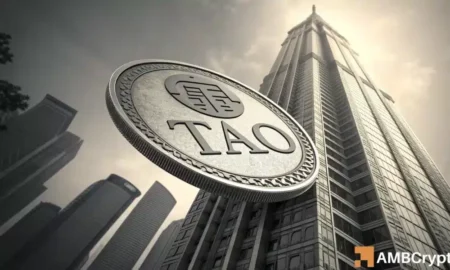Luxembourg’s Groundbreaking Move: Bitcoin in a Sovereign Wealth Fund
Luxembourg has made a significant leap in the realm of digital finance by becoming the first Eurozone nation to invest in Bitcoin through its sovereign wealth fund. During the 2026 Budget presentation at the Chambre des Deputes, Finance Minister Gilles Roth announced that the Fonds Souverain Intergenerationnel du Luxembourg (FSIL) has allocated 1% of its portfolio to Bitcoin. This decision underscores Luxembourg’s ambition to position itself as a leader in the evolving landscape of cryptocurrencies and digital assets.
A Milestone for Luxembourg’s Investment Strategy
The inclusion of Bitcoin marks a milestone for Luxembourg, which is keen on showcasing its maturity in the realm of alternative assets. According to Bob Kieffer, Director of the Treasury, this strategic move emphasizes the "growing maturity of this new asset class." The FSIL’s updated investment policy now permits up to 15% of total assets to be allocated to alternative investments, which encompass private equity, real estate, and now, cryptocurrency. The decision to invest approximately €8.5 million (around $9 million USD) in Bitcoin predominantly through ETFs mitigates potential custody and operational risks, aligning with the fund’s cautious yet progressive approach.
Balancing Caution and Opportunity
While some may argue that Luxembourg is entering the cryptocurrency space too conservatively, Kieffer believes that a 1% allocation is a prudent approach. “Some might argue that we’re committing too little too late, while others will point out the volatility and speculative nature of the investment,” he stated. The cautious shift reflects the fund’s mission to preserve wealth across generations while still embracing the potential of emerging digital assets. This allocation allows Luxembourg to position itself advantageously in what appears to be a promising future for cryptocurrencies.
Regulatory Framework Updates
The timing of Luxembourg’s Bitcoin investment is pivotal as it coincides with the country tightening its digital asset regulatory framework. Preparations are underway for the implementation of DAC8, aimed at expanding tax and reporting standards for crypto service providers by 2026. This regulatory enhancement not only reinforces Luxembourg’s commitment to digital finance but also sets the groundwork for attracting more institutional investments in cryptocurrencies.
A Broader European Context
Luxembourg’s forward-thinking approach is part of a wider European initiative to regulate and embrace cryptocurrency investments. The UK is taking significant steps by preparing to allow retail investors to hold crypto Exchange Traded Notes (ETNs) in tax-advantaged accounts, such as ISAs and personal pensions. The Financial Conduct Authority (FCA) has lifted restrictions, paving the way for a more integrated approach to digital assets in mainstream finance. Concurrently, the European Securities and Markets Authority (ESMA) is expanding its supervisory powers, signaling a push toward unified oversight across member states.
Symbolism Over Size
Although the 1% Bitcoin allocation may seem modest against the backdrop of the €850 million managed by the FSIL, it carries substantial symbolic weight. Luxembourg has officially recognized Bitcoin within its state investment policy, potentially setting a precedent for other Eurozone countries to follow suit. As more sovereign investors look to diversify their portfolios, Luxembourg’s pioneering investment could inspire similar actions within the European Union.
Conclusion: A Step Towards The Future of Finance
Luxembourg’s groundbreaking investment in Bitcoin through its sovereign wealth fund is a pivotal moment not only for the nation’s financial strategy but also for the broader European outlook on digital assets. As the EU, alongside the UK, strives to integrate cryptocurrencies into formal financial frameworks, Luxembourg’s actions could signal the onset of a transformative era for sovereign wealth funds. By establishing a presence in the cryptocurrency market, Luxembourg is not just leveraging an emerging asset class; it is laying the groundwork for a new paradigm in finance, one that welcomes innovation while balancing prudence and responsibility.
















